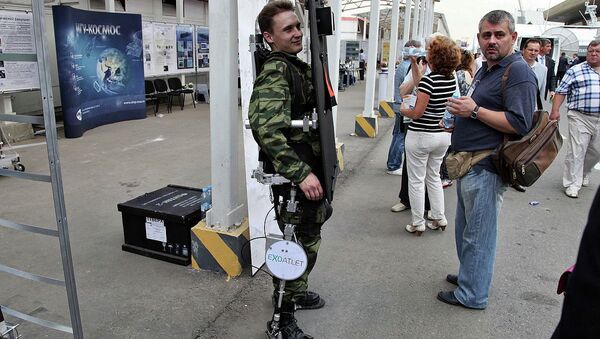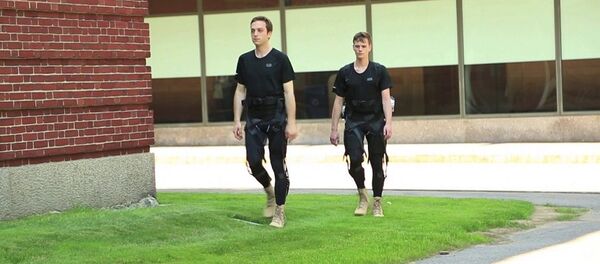Сlinical tests of ExoAtlet, which started on July 1 at the Pirogov National Surgery Institute in Moscow, include a comparative analysis of existing exoskeletons which use classical methods of mechanical therapy. A number of Swiss-made robotic complexes are currently at work at several Russian clinics, but they cost ten times more than the ExoAtlet and, therefore, are out of reach of ordinary Russian patients.
ExoAtlet’s control system responds to voice control as well as to signals coming from torque sensors and the patient’s brain
Exoskeleton ExoAtlet will enable patients to walk again, go up and down the stairs, sit down and stand up all by themselves.
On June 28 ExoAtlet received official Health Ministry registration which opens the way to its wide clinical use across Russia.
“Official registration kick-starts a long-distance campaign of nationwide sales and participating in in clinical studies to set new medical standards for treating patients with brain and spine injuries with the help of exoskeletons and instruments of robotic mechanic therapy,” ExoAtlet Company’s founder and CEO Yekaterina Bereziy said.



